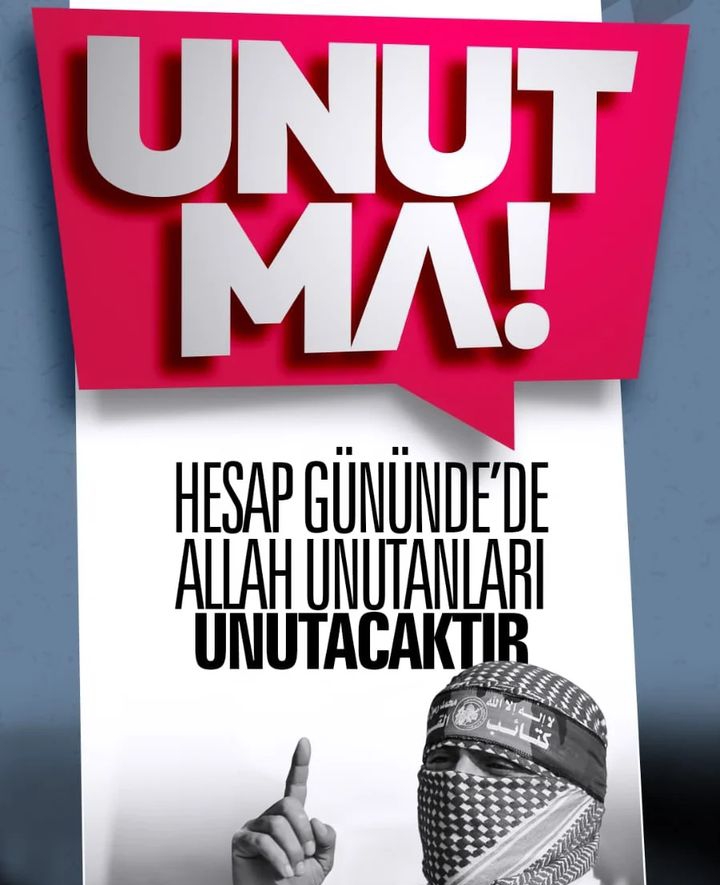- 25 Mart 2025 - -YENİ- İYİ FİNAL/YAŞLILIK İÇİN
- 17 Mart 2025 - MİLLİ BİRLİK VE BERABERLİĞİMİZİN 5 KİLOMETRE TAŞI
- 10 Mart 2025 - NEYİ ÇEKİYORSUNUZ? (Rezonans-Çekim yasası)
- 03 Mart 2025 - ŞEYTANI NE DAVET EDER?
- 24 Şubat 2025 - ŞANLI DEVRİMİ DUYDUNUZ MU?
- 17 Şubat 2025 - AİLE YILINDA KAMU-STK DENGESİ (AİLE VAKFI ÖNERİSİ)
- 10 Şubat 2025 - MİKROFONLA EZAN OKUNURKEN SAĞA/SOLA DÖNÜLÜR MÜ?
- 04 Şubat 2025 - YILDIZ MI, AY MI, KARA DELİK MİSİNİZ?
- 27 Ocak 2025 - FELAKETLERİN İLK ADIMI SUÇLUNUN MASA İLAN EDİLMESİYDİ
- 20 Ocak 2025 - ÜZÜMÜN SAPI, ARMUDUN ÇÖPÜ, MUZUN KABUĞU YENİR Mİ?
- 13 Ocak 2025 - BİZİ KİM DAHA İYİ YIKAR? SU MU, ATEŞ Mİ?
- 07 Ocak 2025 - KAN BAĞIŞI MI? HACAMAT MI?
- 30 Aralık 2024 - KAVGALARIN ASIL SEBEBİ NEDİR?
- 25 Aralık 2024 - VER KORKUYU DEĞİL; VER COŞKUYU
- 17 Aralık 2024 - İMAN-HİKMET-GAYRET-TEVEKKÜL
- 09 Aralık 2024 - ZITLIKLARIN ORTASINDA VASATI BULMAK
- 02 Aralık 2024 - MECELLE PUSULASI (ALTIN FORMÜL İÇERİR)
- 25 Kasım 2024 - ZAHMETTEN KAÇARAK RAHMETE ULAŞILABİLİR Mİ?
- 18 Kasım 2024 - HAK YOK VAZİFE VAR; FERT YOK CEMİYET VAR.
- 11 Kasım 2024 - POLİMAT-ENTELEKTÜEL
- 04 Kasım 2024 - ÖNCE DONANIM (HARDWARE) SONRA YAZILIM (SOFTWARE)
- 28 Ekim 2024 - İBRETLİK BİR ÖLÜMDEN DERS ÇIKARABİLMEK (FETÖ GERÇEĞİ)
- 21 Ekim 2024 - YAŞLANMA SÜREÇ ODAKLI BİR GELİŞMEDİR VE ANNE KARNINDAN BAŞLAR.
- 15 Ekim 2024 - ÜÇÜ BİRLEYEBİLİR MİYİZ? (Türkçülük/İslamcılık/Batıcılık)
- 07 Ekim 2024 - BEYİN-BEYİNCİK-VİCDAN=YASAMA-YÜRÜTME-YARGI
- 30 Eylül 2024 - GEÇMEK Mİ, KALMAK MI?
- 23 Eylül 2024 - METAFOR (MESNEVİ/KABAK METAFORU)
- 03 Eylül 2024 - KİTAP VE SİLAH DENGESİ
- 12 Ağustos 2024 - ÖNCELİKLİ KAYGILARIMIZ
- 06 Ağustos 2024 - SEVGİ-ACI-HZ. İNSAN
- 22 Temmuz 2024 - GENÇLİĞİN GÜNDEMİNDEKİ KONULARA DAİR: SORU/CEVAP
- 15 Temmuz 2024 - KAPAĞINIZ/DUDAĞINIZ KAPALI MI?
- 09 Temmuz 2024 - SÜLEYMANLAR AYAKTA ÖLÜR.
- 05 Temmuz 2024 - EVLİLİK YAŞI İÇİN 5 N 1 K (HZ. AİŞE ÖRNEĞİ ÜZERİNDEN)

DR. CEMİL PASLI
EN BÜYÜK SÜRPRİZ BİZİ BEKLİYOR OLABİLİR Mİ?
“EN BÜYÜK SÜRPRİZ” BİZİ BEKLİYOR OLABİLİR Mİ?
Bütün elçiler ellerindeki mesajlarla insanda “farkındalık” oluşturmak için gönderildiler.
Ne idi o farkındalık?
Siz birbirinizle imtihan olunuyorsunuz. Dolayısıyla birbirinizin hukukuna tecavüz etmeyin.
Her gönderilen elçi mesajı ve ortaya koyduğu örneklikle zayıf, mağdur ve mazlumların haklarının korunmasına dikkat çekti.
İslam’da kulluğun iki ayağı vardır:
Birisi; hasenat dediğimiz kişisel ibadetlerdir: Namaz, Oruç, Hac, Zekât v.b.
İkincisi; salihat dediğimiz toplumsal ikinci şahıslara temas eden davranışlardır: Adil olmak, komşu hakkı, kul hakkı yememek, işinin hakkını vermek v.b.
Özetle; namaz, oruç, hac gibi kişisel ibadetler Allah’ın huzurunda kestiğimiz çekler gibidir.
O çeklerin karşılığı sadece sosyal hayatta yaratılmışların hukukuna riayet etmekle ödenir.
Namaz/Oruç/Hac gibi hasenatlar kul/komşu/yetim/mazlumların hukukuna riayete dönüşmüyorsa “karşılıksız çek” gibi hükümsüzdür.
Allah Teâlâ, en önemli kişisel farzlardan olan namazın karşılığı olarak “taşkınlıktan ve azgınlıktan uzak durmayı” zikreder:
“(Resûlüm!) Sana vahyedilen Kitab'ı oku ve namazı kıl. Muhakkak ki, namaz, hayâsızlıktan ve kötülükten alıkoyar. Allah'ı anmak elbette (ibadetlerin) en büyüğüdür. Allah yaptıklarınızı bilir.” Ankebut, 29/45.
“Vay haline o namaz kılanların ki, Onlar namazlarının özünden uzaktırlar. Onlar halka gösteriş yaparlar. Hayra da engel olurlar.”Maun, 107/4-7.
Peygamberimiz de “müflis hadisi” ile “karşılıksız çek” olayına dikkat çekmiştir.
Ey iman edenler dikkat!
Bir ton namaz/oruç/hac/umre ile ahrete gidip orada çok büyük bir sürprizle karşılaşmayın!
Oranın telafisi yok, oradan dönüş yok.
Sakın haaa!!!
Could “the Biggest Surprise” Be Awaiting Us?
All messengers were sent to raise "awareness" among people with the messages they had.
What was that awareness?
You are being tested with each other. Therefore, do not violate each other's rights.
Each ambassador sent drew attention to the protection of the rights of the weak, victimized and oppressed with his message and example.
Servanthood in Islam has two pillars:
Someone; What we call good deeds are personal acts of worship: Prayer, Fasting, Hajj, Zakat, etc.
Latter; What we call righteousness are behaviors that touch social second parties: being fair, not violating the rights of neighbors, the rights of people, giving their due, etc.
In summary; Personal acts of worship such as prayer, fasting, and pilgrimage are like checks we cut in the presence of Allah.
Those checks can only be paid by complying with the laws of creatures in social life.
If good deeds such as Prayer/Fasting/Hajj do not turn into compliance with the rights of people/neighbours/orphan/oppressed people, they are invalid like a "bounced check".
Allah Almighty mentions "staying away from excess and excess" as a response to prayer, which is one of the most important personal obligations:
“(My Messenger!) Read the Book that has been revealed to you and perform the prayer. Surely, prayer prevents from indecency and evil. Remembering Allah is certainly the greatest (of worship). Allah knows what you do.” Ankebut, 29/45.
“Woe to those who pray, they are far from the essence of their prayer. They show off to the public. They also prevent goodness.” Maun, 107/4-7.
Our Prophet also drew attention to the "bounced check" incident with the "bankrupt hadith".
O you who believe, pay attention!
Don't go to the afterlife with a ton of prayer/fasting/hajj/umrah and encounter a big surprise there!
There is no compensation, there is no turning back from there.
Don't huh!!!












Henüz Yorum yok